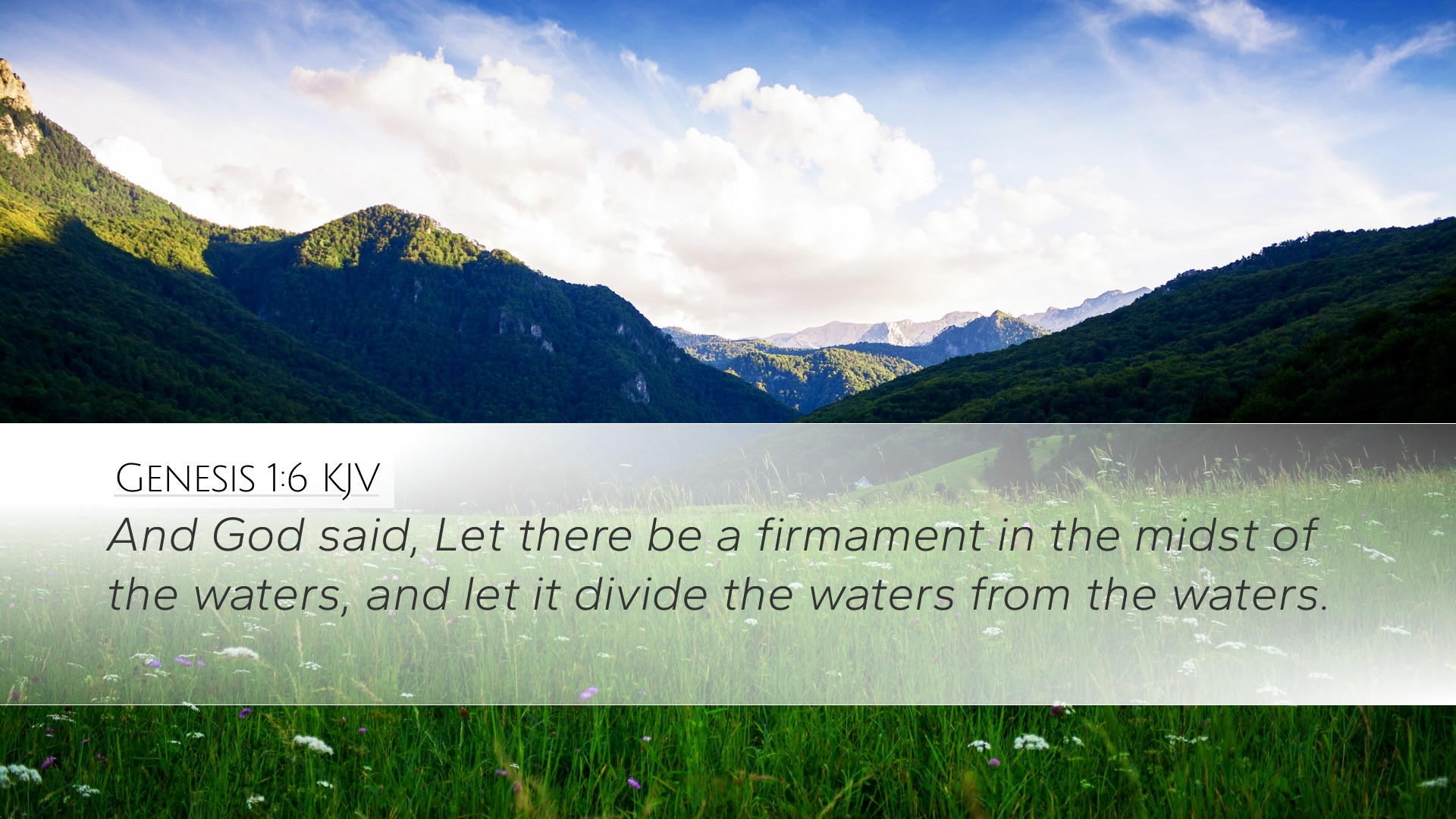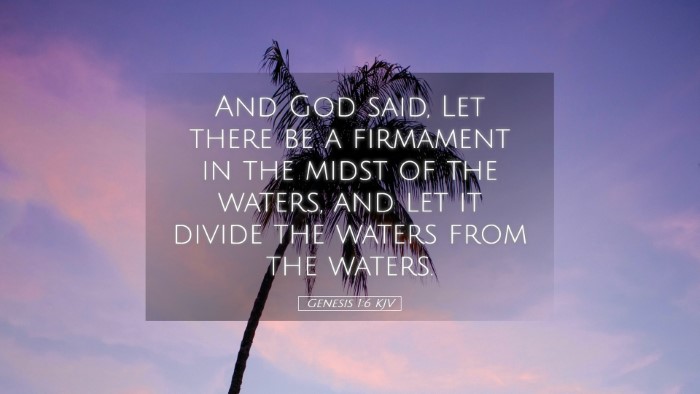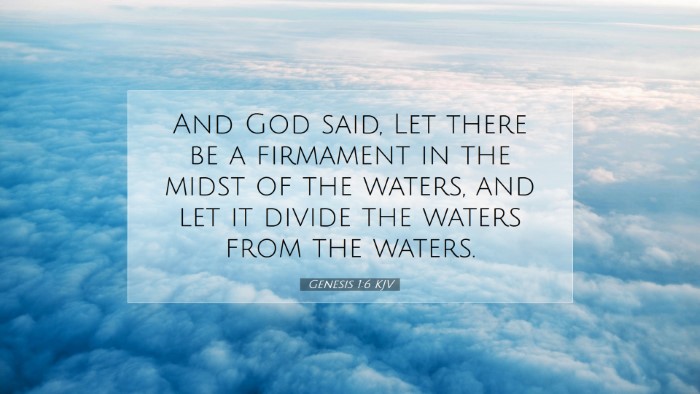Commentary on Genesis 1:6
Verse: "And God said, Let there be a firmament in the midst of the waters, and let it divide the waters from the waters." (Genesis 1:6)
Introduction
The creation account in the book of Genesis presents a profound theological framework that reveals God's omnipotence and the intentionality behind the cosmos' design. Genesis 1:6 marks a critical juncture in the creation narrative, wherein God establishes the firmament—a significant structure within the created order. This commentary draws insights from esteemed public domain commentaries such as those by Matthew Henry, Albert Barnes, and Adam Clarke to explore the breadth of meaning embedded in this pivotal verse.
The Divine Pronouncement
The phrase, "And God said," underscores the power of God's word in creation. As affirmed by Matthew Henry, this statement showcases that God's command is sufficient for the universe's material and structural formation. The act of speaking into existence what was not previously there embodies a fundamental Christian understanding of reality—God speaks, and it is so.
The Firmament Defined
The "firmament" (Hebrew: raqia) refers to an expanse or a dome-like structure that God created to separate the waters above from the waters below. Albert Barnes elucidates that this expanse represents the sky or heavens, a cosmic boundary that holds the celestial waters and facilitates life on Earth. It encapsulates God's creation's order and beauty, creating distinct realms within His creation.
Theological Implications
The firmament's establishment holds profound theological implications. The act of division signifies God's sovereignty and authority over chaos. Adam Clarke emphasizes that this separation denotes God's desire for order rather than disorder. The firmament acts as a divine boundary, where God's will and purpose align with the created order, emphasizing the theme of separation that recurs throughout Genesis, as God separates light from darkness and land from sea.
The Purpose of the Firmament
In the structure of creation, each element serves a purpose. The firmament's role is not merely to separate but to sustain life by maintaining a balance within the ecological system God initiates. It acts as a protective barrier, a concept echoed in the thoughts of Matthew Henry, who comments on God's provision and care in establishing an environment conducive to human thriving.
- Division of Waters: The waters are divided to create a habitable space for humanity. This act indicates the intentionality behind God's creation.
- Provision for Life: As Clarke notes, the firmament allows for the distribution of rain, essential for the sustenance of the earth.
- A Reflection of God's Nature: God's desire for order reflects the inherent nature of God as a God of peace and structure rather than chaos.
Cosmic Order and Human Understanding
God's creation of the firmament establishes a layered understanding of the universe, fostering humanity's comprehension of the divine cosmos. The separation invites humans to seek meaning and to recognize their place within this divine order. Matthew Henry articulates that this structure helps humanity grasp the magnificence and intricacy of God's workmanship, instilling awe and reverence for the Creator.
Lessons for Today's Believers
In considering the firmament's significance, contemporary believers find tips for living in harmony with God's creation. Recognizing the intentionality behind the structure calls for stewardship and care for the environment—an echo of God's original design. Reflecting on the word's power and God's authority can inspire faith in the promise that God remains sovereign over chaos, encouraging reliance on His creative and sustaining word.
Conclusion
Genesis 1:6 serves as a foundational moment in the biblical narrative, setting the stage for further revelations about God's creative engagement with the world. The firmament's establishment embodies divine separation, order, and provision—core themes that reverberate throughout Scripture. As pastors, students, theologians, and Bible scholars delve into this text, they uncover layers of meaning that enrich their understanding of God's nature and His purposeful design in creation.
Final Reflection
The beauty of Genesis 1:6 lies not only in its historicity and cosmological implications but also in its invitation to all of creation to engage with the Creator deeply. The firmament invites believers to see the world through a lens of divine artistry, where each element exists by God's design and intention. May this understanding shape our hearts and minds to live faithfully within the boundaries of God's creation.


